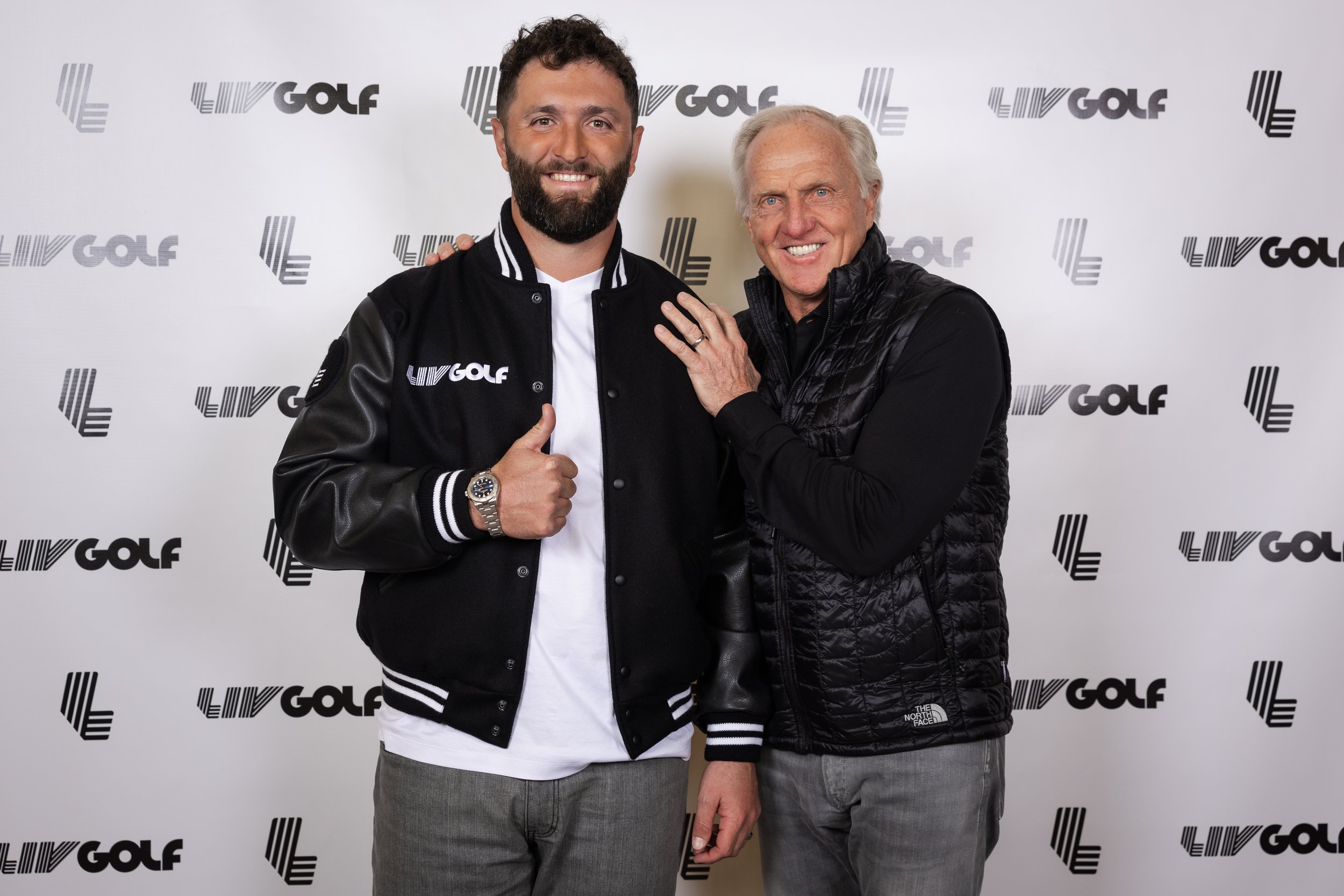"Growing the game" of golf without deep respect to its inherited traditions will shrink the game

Two-time major winner and the reigning Masters champion, Jon Rahm and LIV Golf Commissioner and CEO Greg Norman pose for a photo during a LIV Golf announcement at the Park Hyatt New York on Dec. 7, 2023 in New York, New York. (Photo by Scott Taetsch/LIV Golf)
As he was being inducted into the American Baseball Hall of Fame in Cooperstown, New York in 2005, Chicago Cubs great Ryne Sandberg gave a speech about honouring a game that is bigger than himself. Anyone associated with, or considering being associated with, the LIV Golf tour should give the speech a listen.
That summer afternoon, Sandberg said his sport was bestowing its greatest honour on him because he “played the game the way it was supposed to be played.” The reason, he continued, was that he “had too much respect for the game to play it any other way.” In fact, Sandberg said, baseball was enshrining him into its sacred hall because of a single conviction he abided by as a player: Respect.
As part of his announcement to join LIV Golf on FOX News recently, Jon Rahm justified his decision by saying that he wants to be part of something new that is bringing “growth to the game”. Previous people who have joined LIV have also justified their decision by saying, as former U.S. Open champion Graeme McDowell put it, that the new tour will help “grow the sport.”
Growing the game of golf is, indeed, important. This is without doubt. But if the game’s disruptors fail to embrace and respect its traditions, they will ultimately drive people away. R&A chief executive Martin Slumbers previously told reporters how LIV is actually "harming the perception of the sport." Shane Lowry recently said that is hard for the ordinary golfer to listen to multi-millionaires say they joined LIV to “grow the game”. Rory McIlroy also fears that golf is in danger of “cannibalising itself” and becoming less relevant.
What is required to avoid shrinking the game? Nothing more than a deep and all-encompassing regard for golf's whole inherited tradition that makes up the game. It is one thing to say a new tour backed by $2 billion from Saudi Arabia’s Public Investment Fund is growing the game. It’s another to demonstrate a sense of commitment to the objectives which led to the creation of the game of golf in the first place.
Speaking at St. Andrews, Scotland in July 2022 as The Open Championship was celebrating its 150th anniversary, Tiger Woods epitomized this commitment when discussing LIV and the players who have joined its tour. “They've turned their back on what has allowed them to get to this position,” he said. “It would be sad to see some of these young kids never get a chance to experience and walk these hallowed grounds and play in these championships." Woods was talking about respect, and the sense of obligation to the game's founding architects, its historic innovators, its earliest superstars, and others currently playing.
The future of golf is at a crossroads, and there are a couple of paths professional golf may take from here. One real possibility in the short-term is that people associated with LIV like Rahm, given their track record, may simply turn their backs on LIV and attempt to realign with the traditions of the game.
Another is for all players to come together, act collectively and negotiate as one with LIV, the PGA and other tours as required. The Framework Agreement could be the first step. By doing so, they would be better able to protect their interests, but also ultimately serve as true custodians of the game.
From this point forward, education about golf's traditions and all they encompass should be a priority focus for everyone who participates in the game. These traditions are a shared responsibility, and what made this entire situation possible in the first place is that people across both sides may have failed to demonstrate the importance of this deep appreciation over time.
In his baseball Hall of Fame speech, Sandberg said he was taught to never disrespect his opponent, his teammates, his organization, his manager, his uniform.
“Playing every day? That was my job,” he said. “I didn’t play the game right because I saw a reward at the end of the tunnel. I played it right because that’s what you’re supposed to do -- play it right and with respect.
Heeding the words of one of baseball’s greats could help this generation of golf greats avoid cleaving their sport from its traditions, and precipitating the decline of the game on their watch
David Lavallee is a Professor of Duty of Care in Sport at Abertay University in Scotland, and an Adjunct Professor at the University of Limerick.
David Lavallee is a Professor of Duty of Care in Sport at Abertay University in Scotland and an Adjunct Professor at the University of Limerick.
